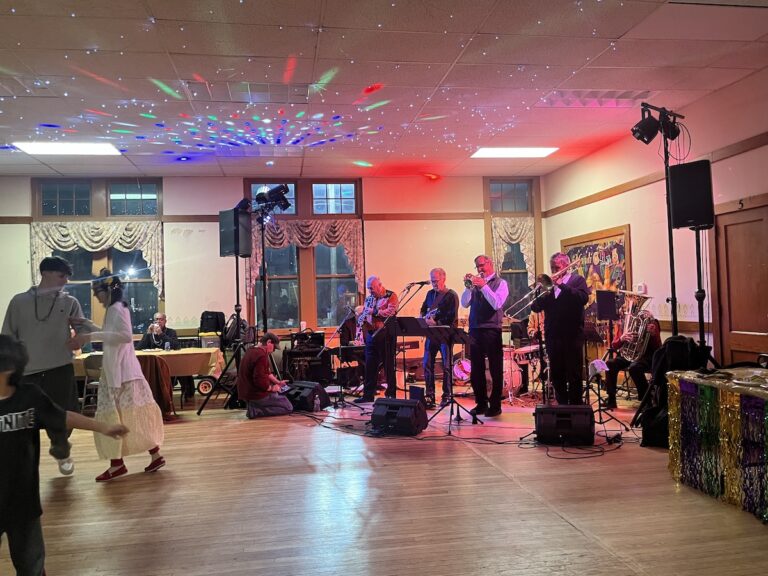Slow Food USA President Speaks on Campus
“We don’t want fast food, we want slow food,” chanted scores of angry Italians at the opening of a McDonalds in Rome in 1986. The protesters handed out bowls of pasta to passerbys, and thus was the birth of Slow Food, explained Josh Viertel, the President of Slow Food USA in an afternoon event held last week.
You may think that Slow Food means eating long, drawn-out dinners or staring at your food for an hour before sampling it. When I was a freshman, I remember a meal at Buddhist House when, after a day of meditation, participants spent half an hour smelling, staring at, and appreciating their food before each bite.
Don’t be fooled. Slow Food is more than just consciously thinking about the food that you are about to eat—it aims to create broader connections between enjoyment of the food and the production process. Founded in Italy in 1986, it has expanded to 143 different countries with 1,300 local chapters around the world.
Last Wednesday, in conjunction with the Italian Department, College of the Environment, and WesFRESH, Viertel visited campus to discuss the growing food movement and the work of Slow Food USA.
“Food is the thing that has grounded people in community in a human way,” Viertel said. “How we make change is always linked to food. The power that food has is to bring people together in a really meaningful way.”
Viertel spoke about various issues that Slow Food USA is currently focused on, including new initiatives they hope to garner community support for with the introduction of the Agriculture Bill in 2012. These include the construction of school and community gardens, the addition of farmers’ markets into food desert zones, and expanded access to healthy food.
“It’s important to make our food represent our values,” Viertel said. “It doesn’t matter what your values are, just that it is embedded in your choices.”
Slow Food USA emphasizes working on an individual, community, and national level.
“The ‘vote with your fork’ movement is aimed at trying to raise consciousness so individuals can make good purchasing choices,” Viertel explained. “Many can’t afford healthy food or there is no place to purchase it. We are shifting the values discourse to a rights discourse.”
The community level works on building coalitions of community members to tackle local issues. For example, 300 gardens in public schools have been built in conjunction with Slow Food USA.
“This is the heart and soul of the movement,” Viertel said. “This is where we roll up our sleeves and start doing it. This is work you can’t do at the national level. In order to bring change to Washington, we need to build strong relationships with people to carry through to the national level.”
Many people have accused the organic and local food movement of being a suburban, upper class phenomenon, leaving little room for inner-city residents and low-income consumers. Viertel tried to show how Slow Food is working to bring fresh fruits and vegetables to food deserts and educate children about where their food comes from.
“We have slipped into a discourse that slow food equals fancy food,” Viertel said. “This doesn’t have to be the case. When apples cost more than fruit loops, there is a problem in our food system.”
Slow Food USA recently launched the $5 challenge, which stipulates that citizens host meals of fresh, local produce for under $5 a person. Started by a student at University of North Carolina, this challenge aims to demonstrate how local, healthy meals do not need to be expensive. In September, 30,000 people participated in the $5 challenge and cooked meals under the budget limit across the country.
“Things have never been worse but have also never been so inspiring,” Viertel said. “That’s what really motivates me to create pathways for people to do this work.”
The growing food movement has created a lot of recent conversation both around the country and on campus. Many of the students present were well educated about the food movement and involved in various food and activism issues on campus, such as Long Lane Farm and WesFRESH.
“This isn’t my typical stump speech,” Viertel noted, realizing that most of the students in attendance were knowledgeable about the topics he was discussing.
For most of the discussion, Viertel was preaching to the choir, building upon well-known facts with personal anecdotes, while trying to challenge the audience to think more about the connection between good food and thoughtful practice.
“The revolution needs culture,” Viertel said. “A lot of social change work is really dull and ineffective, that’s why you have to get your hands dirty and connect with your food through manual labor.”







Which college campus was this?